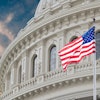
Scientific fraud may be a problem in nuclear medicine research journals, says a group in the Netherlands that conducted a recent global survey on the issue. Results were published September 8 in the Journal of Nuclear Medicine.
In a survey of corresponding authors of studies in top international journals in nuclear medicine, 25% of respondents either admitted to committing scientific fraud or reported that they had witnessed or suspected someone of fraud in their department, according to the study. Data manipulation and falsification was among the top types of reported fraud.
"There is considerable room for improvement when it comes to banning scientific fraud and lifting the integrity and trustworthiness of nuclear medicine research," wrote a team led by Dr. Thomas Kwee, PhD, of the University Medical Center Groningen.
Scientific fraud is defined as the fabrication, falsification, or plagiarism in proposing, performing, or reviewing research, or in reporting research results. Publication bias, which refers to studies with positive results being more likely to get published than studies with negative results, is also considered a persistent problem in scientific publishing.
A third major undesired phenomenon is "honorary authorship," which is defined as the intentional misrepresentation of credit to an individual whose contributions to a biomedical article do not meet the criteria for authorship established by the International Committee of Medical Journal Editors.
These three persistent problems have been shown to lead to unreliable scientific data in medical journals. In the current study, the researchers aimed to explore their scope in nuclear medicine research studies.
The group sent questionnaires to 2,111 corresponding authors who published articles in any of the top 15 international nuclear medicine journals in 2021. The authors asked a series of 11 open- and closed-ended questions covering experiences with scientific fraud, publication bias, and honorary authorship over five years.
Most respondents were 35-44 years of age and male. The top three countries of residence of respondents were the U.S., Italy, and Germany, and most respondents had a medical doctorate degree (60.2%), were full professors (32.7%), and had more than 10 years of research experience (71.3%).
Out of a total of 254 corresponding authors who completed the survey, Kwee and colleagues reported the results in the table below.
| Types of scientific fraud witnessed in nuclear medicine research | |
| Type of fraud | Prevalence rate |
| Presence of publication bias | 86% |
| Honorary authorship | 36.7% |
| Witnessed or suspected scientific fraud by colleague in past five years | 21.3% |
| Personally committed scientific fraud | 4.3% |
The top types of scientific fraud reported by the corresponding study authors were duplicate or redundant publication, misleading reporting, and data manipulation and falsification, according to the findings.
"For nuclear medicine to prosper to its full potential, there should ideally be no place for scientific fraud, publication bias, and honorary authorship," the authors wrote.
Kwee and colleagues noted limitations of the study, namely that it remains unclear which publications contained fraudulent data, and to what extent this inflicted patient harm and financial damage.
Interestingly, the authors noted that researchers ages 55-64 had significantly more confidence in the integrity of published work, whereas the opposite was true for assistant professors and those with less than five years of research experience. This feeds the hypothesis that there are differences in perceptions on this topic between junior and senior researchers, the authors wrote.
One survey respondent commented, "Last [five years] is a short period for a long scientific life, especially if one switched to a city hospital. My answers would have been different 20 years ago ;-)"
Also, only 11 respondents indicated that they committed scientific fraud by themselves, which was too low a number to investigate which individual factors are associated with performing fraud, the researchers wrote.
Ultimately, publication pressure ("publish or perish") and the scramble for research grants have been recognized as factors that may give rise to fraudulent research studies, according to the authors. Funding bodies and medical journals are often driven by the desire for positive study results, which may also be detrimental to the scientific climate in which researchers have to operate, they wrote.
"Banning scientific fraud and lifting the integrity and trustworthiness of nuclear medicine research and research in general may require a system change," Kwee and colleagues concluded.



















